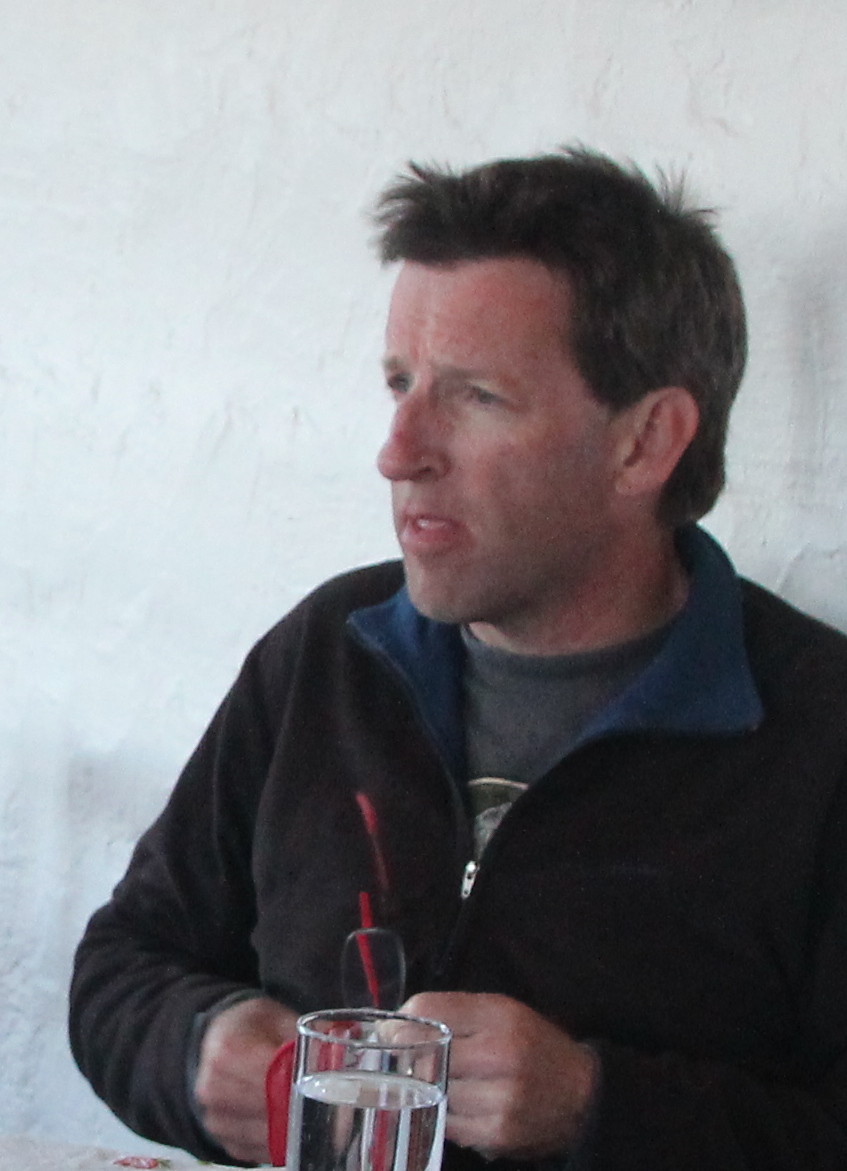 When I was a boy haircuts were tears compensated with lollipops, a reward that seemed adequate only afterward when the whole ordeal was done for another couple of months. I can’t say I’ve changed that much. But like many things first approached with a bit of trepidation, haircuts have provided me with some of the most memorable of moments. Maybe it’s the enforced slowdown, the imperative to do pretty much nothing for a spell.
When I was a boy haircuts were tears compensated with lollipops, a reward that seemed adequate only afterward when the whole ordeal was done for another couple of months. I can’t say I’ve changed that much. But like many things first approached with a bit of trepidation, haircuts have provided me with some of the most memorable of moments. Maybe it’s the enforced slowdown, the imperative to do pretty much nothing for a spell.
I was still just a kid really when I lived in London for a while after college graduation, squatting in some half-abandoned public housing with a high school friend and drinking pints with the skinny, feral punks who shared the free accommodations—which is a story in itself. In that community it was a winter of discontent—Thatcher in England, Reagan in the U.S., gray skies all around—but I managed to scare up a good if faintly ridiculous job editing travel guides to California and the Southwest for Avis Rent-a-Car.
I was good at the work. I happened to be able to speak German, too, so by the next spring I’d been hired to travel around Germany in the summer, researching the next set of travel guides. Castles, restaurants, museums—all expenses paid, for the whole summer. I was pretty pleased with myself.
Then reality hit in the form of a bomb going off in a Berlin disco packed with U.S. servicemen. Gaddafi, the strongman of Libya, was to blame. In response President Reagan ordered a targeted bombing of Tripoli and Benghazi. Gaddafi survived.
That doesn’t sound like much in our violent era, but in that more innocent time it was enough to ruin thousands of summer vacations. Afraid of more terrorist attacks, Americans canceled their European travel plans in droves. And Avis decided it didn’t need a Germany travel guide that year.
It was the first time geopolitics had intersected so immediately with my plans. What to do? Well, that’s another story. But after months of living on my own in London, I needed a haircut, bad.
The barber I found was Italian, and when he heard my accent he had some opinions.
“That Reagan!” he said, snipping furiously. “Thinks he can go anywhere in the world, bomb anyone! That’s not how you live with your neighbors! Americans—they think they can just do what they want!”
I disagreed with Reagan, I allowed, but it was hard to get a word in edgewise. Hard to get a word in, too, to point out that I liked having the hair cover my ears a bit, and it was going to be hard to part with how short he was shearing me up on top. I didn’t do up my hair the way the punks did, but it was the ’80s, and long bangs hanging over the eyes were pretty much expected.
By the time he was done I looked more like a skinny Marine than a Bowie fan. But he shook my hand and said he thought that Italians and Americans would always be friends, even if we had disagreements, and he hoped I’d come back in for my next trim.
I didn’t, as my travels took me elsewhere—which is another story. But that haircut did last me through much of the summer.
A couple years later, when I was traveling through the U.S., I caught the wild hare of the idea that it would be good to get haircuts in as many different states as possible, and so up in Calumet, Mich., up in the U.P., I walked into a barbershop and the white-haired old barber motioned me right into the seat. Not that he was there by himself; no, two other old-timers were shooting the breeze, telling the well-worn stories like the one about how Marzini and his two buddies went deer hunting one Thanksgiving, got caught in one of the fierce snowstorms they have up there on the Keweenaw Peninsula, and Marzini never did make it home—though they thought he probably had a heart attack as he was a fine woodsman and had as good a shot as anyone as surviving a spell out in the woods.
The two of them had been newspapermen, it turned out, and they had plenty of stories about the good old days of setting type and roaming the snowy North Country in pursuit of stories and the three-day drinking binges by editors, reporters, and publishers. “How the hell did you ever get the paper out?” asked the barber. It was a fair question. Maybe standards were looser back then.
The stories flowed like that for an hour, with the constant interjections of those who have known one another and heard all the same stories before: “he was Marzini’s brother-in-law, you know,” and then the story shifted to another point of view. Here I was, a suburban kid in a place as foreign as the immigrant neighborhoods of London had been to me, and I could almost imagine myself at home here, drinking the Hamm’s beer, hunting the deer, plowing the snow, dealing stories from the same deck of experience, just reshuffled a bit to reflect whoever happened to be listening that day.
And here I have not even gotten to how in Tucson in what may have been my first Arizona trim, I had my hair cut by an unassuming barber who turned out to be Don “Horsefly” Johnson, who an evening after the haircut and about 34 years after winning the National Oldtime Fiddlers contest, turned up at a campground just outside town for a jam session and looked at me and asked, “Didn’t I just cut your hair?” Maybe next time.

